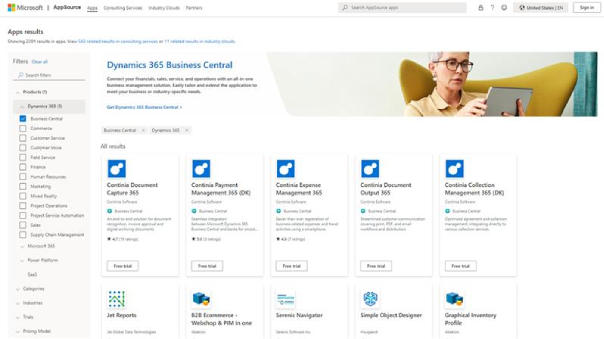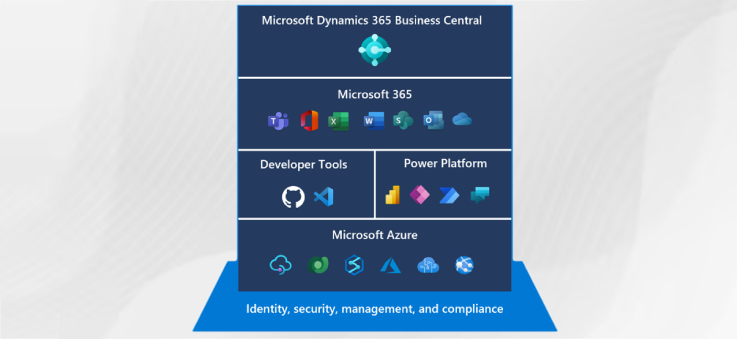As organizations across the globe embrace digital transformation, cloud integration not only enhances operational efficiency but also drives innovation, scalability, and flexibility. STREAMS Solutions, a leader in delivering cutting-edge cloud solutions, understands that the future of cloud integration will shape the way businesses operate, compete, and thrive. This blog explores the future trends, technologies, and strategies that will define cloud integration, positioning it as a cornerstone of the digital enterprise.
The Evolution of Cloud Integration
Cloud integration has come a long way since its inception. Initially, cloud services were primarily used for storage and basic computing. However, as technology advanced, so did the capabilities of cloud services. Today, cloud integration encompasses a wide range of services, including Software as a Service (SaaS), Platform as a Service (PaaS), and Infrastructure as a Service (IaaS), among others. This evolution has allowed businesses to leverage the cloud for a variety of purposes, from hosting applications to managing complex workflows and data analytics.
The Current Landscape
Currently, cloud integration involves connecting various cloud services and on-premises systems to ensure seamless data flow and process automation. Organizations are increasingly adopting hybrid and multi-cloud strategies to optimize performance, cost, and security. Integration platforms as a service (iPaaS) have emerged as crucial tools, enabling businesses to connect disparate systems, applications, and data sources efficiently.
The Shift Towards Intelligent Integration
The future of cloud integration is set to be defined by intelligence and automation. As artificial intelligence (AI) and machine learning (ML) technologies mature, they will play a pivotal role in enhancing cloud integration processes. Intelligent integration platforms will leverage AI and ML to automate routine tasks, predict and resolve integration issues, and optimize workflows. This shift towards intelligent integration will enable businesses to focus on strategic initiatives rather than getting bogged down by operational complexities.
Key Trends Shaping the Future of Cloud Integration
Several key trends are poised to shape the future of cloud integration, driving innovation and transformation across industries. These trends include the rise of edge computing, the proliferation of API-driven ecosystems, the growing importance of data governance, and the emergence of integration-as-code.
1. Edge Computing
Edge computing is rapidly gaining traction as a complementary technology to cloud computing. By processing data closer to the source, edge computing reduces latency and enhances real-time data processing capabilities. This trend is particularly significant for industries such as manufacturing, healthcare, and transportation, where real-time decision-making is critical. The future of cloud integration will see a seamless integration of cloud and edge environments, enabling businesses to leverage the best of both worlds.
2. API-Driven Ecosystems
Application Programming Interfaces (APIs) are the building blocks of modern software architecture. They enable different systems to communicate and interact with each other, facilitating seamless integration. The future will witness the rise of API-driven ecosystems, where businesses will leverage APIs to create interconnected networks of applications and services. This trend will drive innovation, allowing organizations to rapidly deploy new functionalities and services.
3. Data Governance and Security
As data becomes the lifeblood of modern enterprises, ensuring its integrity, security, and compliance is paramount. The future of cloud integration will place a strong emphasis on data governance and security. Advanced encryption techniques, robust access controls, and compliance automation will become standard practices. Additionally, organizations will adopt a holistic approach to data management, integrating data governance policies across all cloud and on-premises environments.
4. Integration-as-Code
Integration-as-code is an emerging trend that leverages the principles of infrastructure-as-code. It involves defining integration workflows and configurations using code, enabling version control, automated testing, and continuous deployment. This approach enhances agility, allowing businesses to rapidly adapt to changing requirements and deploy integrations at scale. Integration-as-code will become a cornerstone of modern DevOps practices, fostering collaboration between development and operations teams.
The Role of Emerging Technologies
Several emerging technologies will play a transformative role in shaping the future of cloud integration. These technologies include AI and ML, blockchain, quantum computing, and the Internet of Things (IoT).
1. Artificial Intelligence and Machine Learning
AI and ML will revolutionize cloud integration by enabling intelligent automation and predictive analytics. AI-powered integration platforms will automatically detect integration patterns, identify anomalies, and suggest optimizations. Machine learning algorithms will analyze vast amounts of data to uncover insights and drive data-driven decision-making. This synergy between AI and cloud integration will empower businesses to achieve unprecedented levels of efficiency and innovation.
2. Blockchain
Blockchain technology, known for its decentralized and immutable nature, has the potential to enhance cloud integration in several ways. It can provide a secure and transparent way to manage data transactions, ensuring data integrity and reducing the risk of fraud. Blockchain can also facilitate secure and efficient multi-party integrations, enabling organizations to collaborate seamlessly across complex supply chains and business networks.
3. Quantum Computing
Quantum computing, though still in its early stages, holds immense promise for the future of cloud integration. Its ability to perform complex calculations at unprecedented speeds will revolutionize data processing and analytics. Quantum-powered integration platforms will handle massive datasets and complex algorithms with ease, unlocking new possibilities for innovation and problem-solving.
4. Internet of Things (IoT)
The proliferation of IoT devices is generating vast amounts of data that need to be integrated and analyzed in real-time. The future of cloud integration will see a closer alignment with IoT ecosystems, enabling businesses to harness the full potential of connected devices. IoT-enabled integration platforms will facilitate seamless data flow between devices, applications, and cloud services, driving real-time insights and automation.
Strategies for Successful Cloud Integration
To navigate the future of cloud integration successfully, organizations must adopt strategic approaches that align with their business goals and technological landscape. Here are some key strategies to consider:
1. Embrace a Hybrid and Multi-Cloud Approach
Adopting a hybrid and multi-cloud strategy provides flexibility and resilience. By leveraging multiple cloud providers and integrating them with on-premises systems, businesses can optimize performance, reduce vendor lock-in, and enhance disaster recovery capabilities. This approach also allows organizations to choose the best-of-breed services from different providers, tailoring their cloud infrastructure to specific needs.
2. Prioritize Data Governance and Compliance
Data governance and compliance are critical in the age of digital transformation. Organizations must establish robust data governance frameworks that encompass data quality, security, privacy, and compliance. Integrating data governance policies into cloud integration processes ensures that data is managed consistently and securely across all environments. This approach not only mitigates risks but also builds trust with customers and stakeholders.
3. Invest in Integration Platforms as a Service (iPaaS)
iPaaS solutions provide a scalable and efficient way to manage integrations across diverse systems and applications. Investing in iPaaS enables organizations to streamline integration processes, reduce complexity, and accelerate time-to-market. Modern iPaaS platforms offer advanced features such as AI-driven automation, real-time monitoring, and low-code/no-code interfaces, empowering business users to create and manage integrations with ease.
4. Foster a Culture of Collaboration
Successful cloud integration requires collaboration between various stakeholders, including IT, development, operations, and business teams. Fostering a culture of collaboration ensures that integration initiatives are aligned with business objectives and technical requirements. DevOps practices, which emphasize continuous integration and continuous deployment (CI/CD), play a crucial role in promoting collaboration and agility.
5. Leverage AI and Automation
AI and automation are game-changers for cloud integration. By leveraging AI-powered tools and automation frameworks, organizations can reduce manual intervention, improve accuracy, and accelerate integration processes. AI-driven analytics provide valuable insights into integration performance, enabling proactive optimization and troubleshooting. Automation not only enhances efficiency but also frees up resources to focus on strategic initiatives.
6. Plan for Scalability and Flexibility
The future of cloud integration will demand scalability and flexibility to accommodate evolving business needs and technological advancements. Organizations should design their integration architectures with scalability in mind, ensuring that they can handle increasing data volumes and transaction loads. Flexible integration frameworks allow businesses to adapt to changing requirements and integrate new technologies seamlessly.
The Role of STREAMS Solutions in Shaping the Future
STREAMS Solutions is at the forefront of driving innovation in cloud integration. With a deep understanding of industry trends and emerging technologies, STREAMS Solutions offers comprehensive cloud integration services that empower businesses to achieve their digital transformation goals. Here’s how STREAMS Solutions is shaping the future of cloud integration:
1. Cutting-Edge Integration Platforms
STREAMS Solutions leverages state-of-the-art integration platforms that provide seamless connectivity across cloud and on-premises environments. These platforms offer advanced features such as AI-driven automation, real-time monitoring, and robust security, ensuring that integrations are efficient, secure, and scalable.
2. Expertise in Emerging Technologies
STREAMS Solutions has a team of experts proficient in emerging technologies such as AI, blockchain, and IoT. By integrating these technologies into their solutions, STREAMS Solutions enables businesses to stay ahead of the curve and unlock new opportunities for innovation and growth.
3. Customizable Integration Solutions
Recognizing that every business has unique integration needs, STREAMS Solutions offers customizable integration solutions tailored to specific requirements. Whether it’s integrating legacy systems with modern cloud applications or managing complex multi-cloud environments, STREAMS Solutions delivers solutions that drive operational excellence and business value.
4. Commitment to Data Governance and Security
Data governance and security are paramount in STREAMS Solutions’ approach to cloud integration. Their solutions incorporate robust data governance frameworks, ensuring that data is managed consistently and securely across all environments. Advanced security measures, including encryption and access controls, protect sensitive data and ensure compliance with regulatory requirements.
5. Strategic Partnership and Collaboration
STREAMS Solutions believes in the power of collaboration. They work closely with clients to understand their business objectives and technical requirements, fostering a partnership that drives successful integration initiatives. STREAMS Solutions’ collaborative approach ensures that integration solutions are aligned with business goals and deliver measurable outcomes.
Conclusion
The future of cloud integration is poised to be transformative, driven by advancements in technology and evolving business needs. As organizations navigate the complexities of digital transformation, cloud integration will play a pivotal role in enabling seamless connectivity, data flow, and process automation. Key trends such as edge computing, API-driven ecosystems, data governance, and integration-as-code will shape the integration landscape, while emerging technologies like AI, blockchain, quantum computing, and IoT will unlock new possibilities for innovation.
STREAMS Solutions, with its expertise and commitment to excellence, is well-positioned to lead the way in this dynamic field. By embracing strategic approaches and leveraging cutting-edge technologies, businesses can harness the full potential of cloud integration, driving operational efficiency, innovation, and growth. The future of cloud integration is bright, and with the right strategies and partners, organizations can confidently embark on their digital transformation journey, reaping the benefits of a connected and intelligent enterprise.





